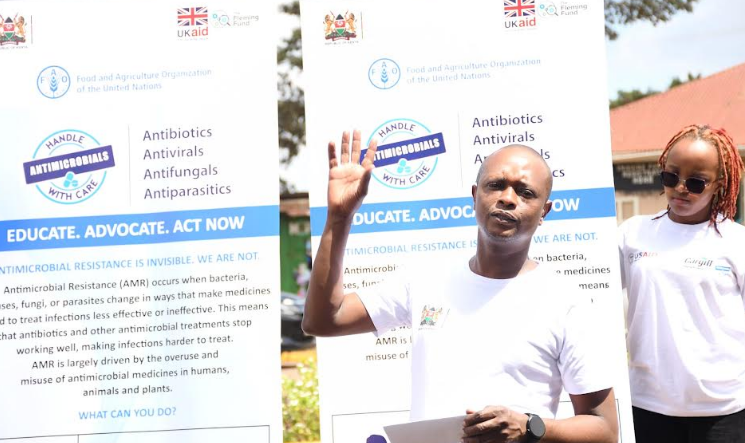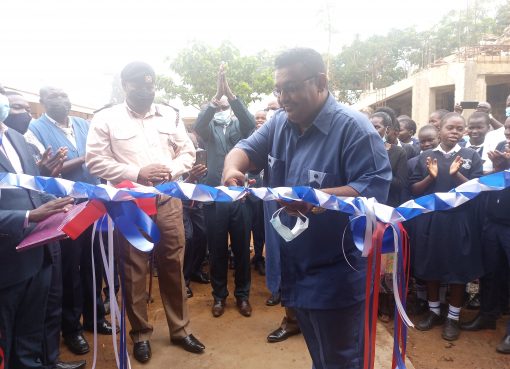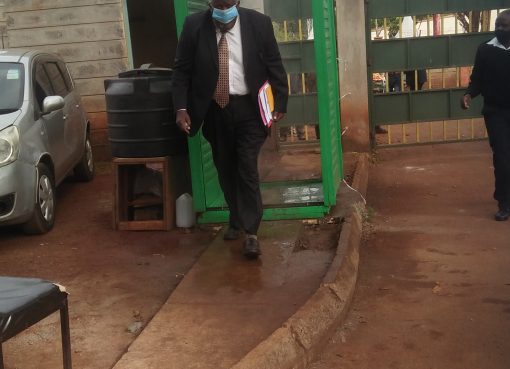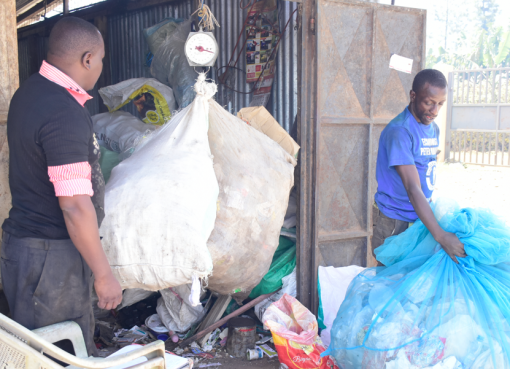Kenyans have been advised to only purchase antibiotic drugs with a prescription from a qualified medical doctor.
Speaking at a forum held to observe the World Antimicrobial Awareness Week at Kiambu Level 5 Hospital, Dr. Hillary Kagwa, the County AMR Focal Person and Director of Health, emphasized the importance of using the One Health approach, which involves human, animal, and environmental health campaigns, to promote responsible antimicrobial use and combat the threat of antimicrobial resistance (AMR).
According to statistics by the World Health Organisation, bacterial Antimicrobial Resistance (AMR) was directly responsible for 1.27 million global deaths in 2019 and contributed to an additional 4.95 million deaths.
“The human body contains more bacterial cells than human cells, and the more antibiotics you take, the more cells are killed; therefore, the more antibiotics we take, the more resistance,” he said.
Dr Kagwa warned that the misuse and overuse of antimicrobials in humans, animals, and plants are the primary factors contributing to the emergence of drug-resistant pathogens.
He said that the primary drivers of AMR are the misuse of antimicrobials and inadequate infection control. These factors have resulted in the development of new resistance mechanisms, increased risk during medical procedures, and higher treatment costs.
“The key drivers of AMR are misuse of antimicrobials and inadequate infection control, factors that have led to the development of new resistance mechanisms, increased risk during medical procedures, and higher treatment costs,” Dr. Kagwa said.
He emphasised the importance of sustainable efforts to combat AMR in Kenya.
“Over the past seven years, we have made significant strides in combating AMR in Kenya. However, sustaining these gains is now crucial. We urge the national government to integrate these achievements into its structures by implementing nationwide advocacy and awareness campaigns. These campaigns should educate and guide citizens, from individual households to all other stakeholders, on responsible antimicrobial use.”
“To ensure sustainability, both national and county governments should allocate funds for AMR control efforts in their budgets. We must consider how the government can effectively support the necessary work. AMR is not an individual problem but a collective challenge that requires collaborative efforts,” Dr. Kagwa said.
World Antimicrobial Awareness Week (WAAW) is a global campaign observed annually from November 18th to 24th. It aims to raise public awareness and understanding of Antimicrobial Resistance (AMR) and promote best practices. Since 2015, WAAW has been an official health campaign of the World Health Organisation.
The week-long campaign included a series of sensitisation activities targeting healthcare providers and the public. These events featured educational sessions on the risks of misusing and overusing antibiotics and the importance of proper drug use.
The week concluded with a county-wide event that brought together stakeholders to reaffirm their commitment to combating AMR through collaboration and sustainable healthcare practices.
By Hellen Lunalo





